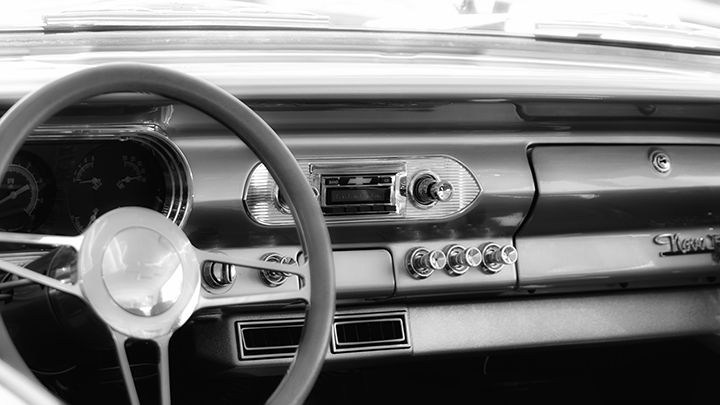As a companion to this month’s Sex, Wheels and Relationships issue, we are publishing two blogs that explore sex and intimacy from two very different viewpoints. The first of these, by Margie Gray, tells how, growing up as a disabled girl in the ’50s and ’60s, she had to figure out sex, intimacy and body acceptance on her own.
The sad truth is I lost my virginity because an orthopedist told me I would never be able to have intercourse.
I was 18 when I arrived at his office with my mom, thinking the problems with my legs would be erased by him in a summer of surgery. He told us my problems were not correctable by surgery, which was traumatic enough. But then he said because of my malformed, barely functional hip joints, I could not have intercourse.
The doctor telling me that I was unable to have intercourse was like an NFL coach throwing a red challenge flag onto a field. I had a boyfriend of sorts — my first — who had been pressuring me for sex. I was trying to be chaste but had always been obstinate when someone told me I couldn’t do something because of my disability. I would find a way! Having sex seemed no different.
That weekend, in the front seat of my Chevy Nova, Bill’s dream came true and I proved one more “normie” wrong. Not a good introduction to what should be a beautiful human experience. Nor was it a good foundation for a healthy relationship with sex. Bill and I ultimately broke up after he found a nondisabled woman to date — he said he was embarrassed to be seen in public with me because of the way I walked. I was determined to become a virgin again.
Untangling Sex, Intimacy and Body Acceptance
Now some 50 years later looking back, I am convinced my relationship with my body, sex and relationships cannot be untangled. My legs were damaged when I was 1 year old and had whooping cough. The virus damaged my nervous system, causing irreparable weakness and deformity to my legs. I used braces and crutches from a young age, so they felt natural to me. But since this was the 1950s and disabled children were segregated in “special” schools, nothing prepared me for the real world.
Sex education in school was clinical, no messy emotions discussed, and my girlfriends were all disabled — no more experienced or educated than I was. And my parents always offered me love, support and motivation to be all I could be, but sex wasn’t something we talked about. So I was on my own to figure it all out! And that’s how I arrived in that 1967 Chevy.
After Bill, I dated a young man who also pressured me for sex, but I was determined to be good. He didn’t care, he took what he wanted. In those days, date rape wasn’t even a thing — but it was. I knew I would be blamed for being at his house, alone with him, drinking and making out with him. When the assault happened, I blamed myself. I told no one about this for years.
I then decided if all men wanted from me was sex, I could avoid a lot of conflict by being willing. I could also feel desirable and pretty, and maybe somehow the relationship would last. I was not a party girl, so to speak, but it was not unusual for me to have sex on my second or third date. In a male-dominated job at the time, I was competent, generally attractive — except for my legs of course — and just wanted acceptance. Looking back, I understand intimately how my going along with sex I didn’t always want was a result of how I felt about being disabled.
Braces, a semi-rigid spine, scars and atrophied muscles all fed into my insecurity. I learned how to be self-sufficient and appear confident, but on the inside I knew I was different, inadequate and flawed. Fight as we might, when hormones are raging, sex and acceptance seem one and the same.
I had several experiences when guys I really liked refused my advances. I suspect it may have had something to do with me appearing needy, but the doubt was there … was it the braces? A recently divorced friend of mine told me last week men will never turn down the offer of sex. How different my experience has been!
Then Came Marriage
The tragedy is that while going through this desperate effort to find myself as a woman, I married a man strictly because he asked me. I felt like I needed to get married so I could fit in somehow. He was an alcoholic, had a mean streak, and philosophically was the antithesis of all I believed. But he saw past my disability and seemed to enjoy me as a person.
I would like to say our sex life was healthy, but it wasn’t. Threatened by any nondisabled woman he spent time with, I was determined to be the best sex-partner I could, even engaging in activities I didn’t like just to please him. How else would I keep his eye from wandering? Of course that was not a successful tactic in the long run. I was also convinced I would never find anyone else who would be attracted to me; not because my husband, but because of who I was.
I have said, after my marriage ended (yes, he left me for a nondisabled woman), my “picker” was broken. I chose dysfunctional men to have relationships with and suffered pain with each one. The truth is that my skewed view of my body was the problem. And, that was a view reinforced by even my family. When I told my mom John and I were divorcing after 19 years of marriage, she asked, “Was it because you are handicapped?”
As I have aged, had a long period of celibacy, and developed a more realistic view of men, I realize that intimacy is the important part of a relationship. Sex is icing on the cake. A relationship can happen no matter what the condition of a person’s body. But the fact is some partners will be turned off by a super-pubic catheter, or scars from repeated surgeries, or a modified sexual position because of non-functional joints. I now realize I don’t need them in my life on any level other than acquaintance. That was a true learning experience.
So here is my advice gained from my misspent youth: become confident, well-educated and independent first. Rushing into any relationship for validation in any way will inevitably be disappointing. Sex is a physical drive, not a sign of acceptance or love. Look for someone you can develop intimacy with — that is fun! Multiple partners can be dangerous to your health, physically and emotionally. Finding acceptance and love is a slow process, and relationships may not last forever, but will always be less damaging to the psyche if it ends.
Margie Gray is a Kansas Citian who retired from the Missouri Department of Corrections in 2000. Besides writing, she loves gardening, shooting pool, training dogs, and volunteering with a dog rescue group and church food pantry.
** This post was originally published on https://www.newmobility.com/2020/02/sex-is-not-intimacy-a-cautionary-tale/


